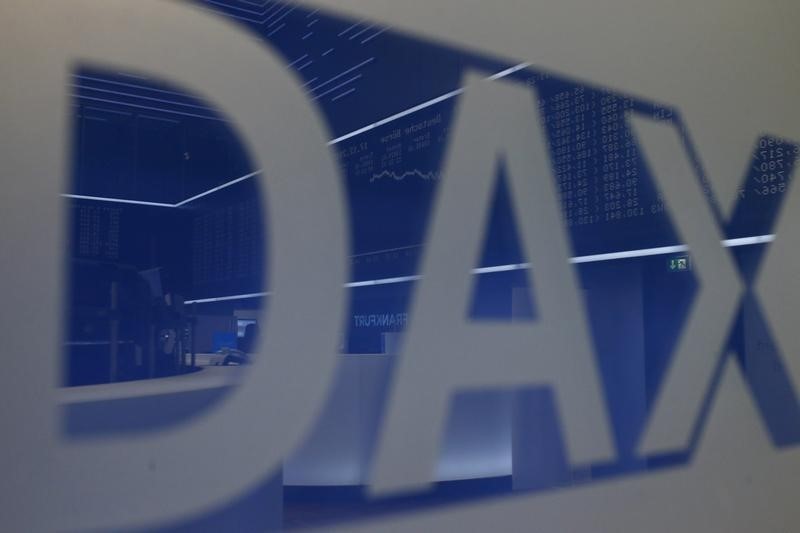* European shares recover after uncertain start
* German equities gain after falling on weak China data
* European car shares move into black
* Brent crude hits three-month high as exporters cut output
* Spanish government bond yields up on Spanish snap election
* Indian rupee loses ground after Kashmir car bomb attack
By Tom Wilson
LONDON, Feb 15 (Reuters) - European shares rose on Friday amid encouraging signs from U.S.-China trade talks, after weak data from both countries sent world stocks into a dive.
Europe's STOXX 600 .STOXX gained 0.8 percent, with German equities staging a strong recovery from early losses.
Talks between China and the United States this week made important progress, President Xi Jinping told top U.S. trade negotiators, and efforts to end their trade war would continue in Washington next week. next potential steps in the US protectionist push could be pivotal for the global outlook," Bank of America Merrill Lynch (NYSE:BAC) economists wrote in a note. "With the trade war already starting to hurt the U.S., we expect the Trump Administration to pull its punch."
Germany's main stock index, .GDAXI exposed to the Chinese economy because of its large number of exporters, climbed 0.7 percent by late morning after falling as much as 0.5 percent.
European car stocks .SXAP , a bellwether for the continent's economy, also turned positive, gaining 0.5 percent after earlier falling 1 percent on declining sales and an approaching deadline for a U.S. Commerce Department report that could see tariffs imposed. stocks had earlier fallen after a U.S. report that retail sales had dropped in December to their lowest since 2009 and data on Chinese producer prices, which were little changed for a seventh straight month in January.
Emerging markets were set for their first back-to-back weekly loss since late last year. The MSCIEF index of emerging- market stocks .MSCIEF dropped 0.7 percent.
Asian shares fell after the U.S. retail sales report. Asia-Pacific shares outside Japan .MIAPJ0000PUS dropped 1 percent as markets in Seoul .KS11 , Tokyo .N225 and Shanghai .SSEC posted losses.
"After hot markets of late, a little bit of cold water has been poured on bourses over the last 24 hours," said Deutsche Bank (DE:DBKGn)'s strategist Jim Reid.
SPANISH SNAP ELECTION Spanish government bond yields rose after Prime Minister Pedro Sanchez called a snap election for April 28, potentially spelling months of uncertainty in the euro zone's fourth-largest economy. currency markets, the Indian rupee INR= weakened after New Delhi warned Pakistan of a strong response to a car bomb attack in Kashmir.
India would remove trade privileges for its neighbour, its finance minister said, a move that could set back annual bilateral trade worth almost $2 billion. Japanese yen and other safe-haven currencies had gained as markets awaited developments in the U.S.-Sino trade saga.
The dollar recovered after the dismal U.S. retail figures, trading up 0.1 percent at 97.055 .DXY against a basket of major currencies.
The euro EUR=EBS was 0.2 percent lower at $1.1272 and headed for a second week of losses. It is down by 1.7 percent so far this year after discouraging economic data from the euro zone.
The 10-year U.S. Treasuries yield fell to 2.6483 percent US10YT=RR , wiping out most of its rise this week.
Commodities were strong all morning. Crude oil briefly reached 2019 highs above $65 per barrel after OPEC-led supply cuts and a bigger-than-expected cut by Saudi Arabia this week encouraged investors.
The global Brent benchmark LCOc1 last traded at $65.01, up 0.7 percent from the last close. It has risen over 4.5 percent this week.
For Reuters Live Markets blog on European and UK stock markets, please click on: LIVE/
